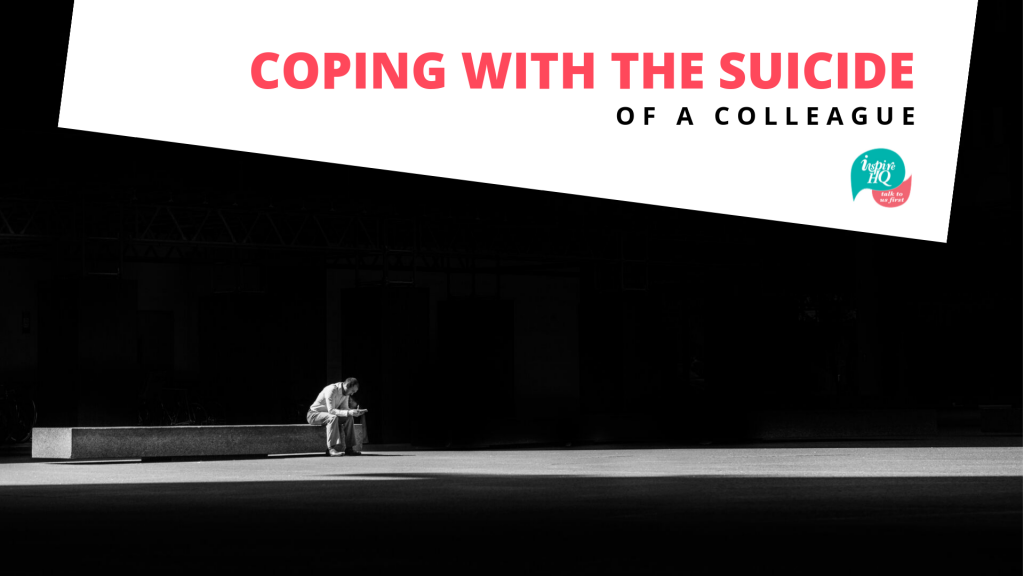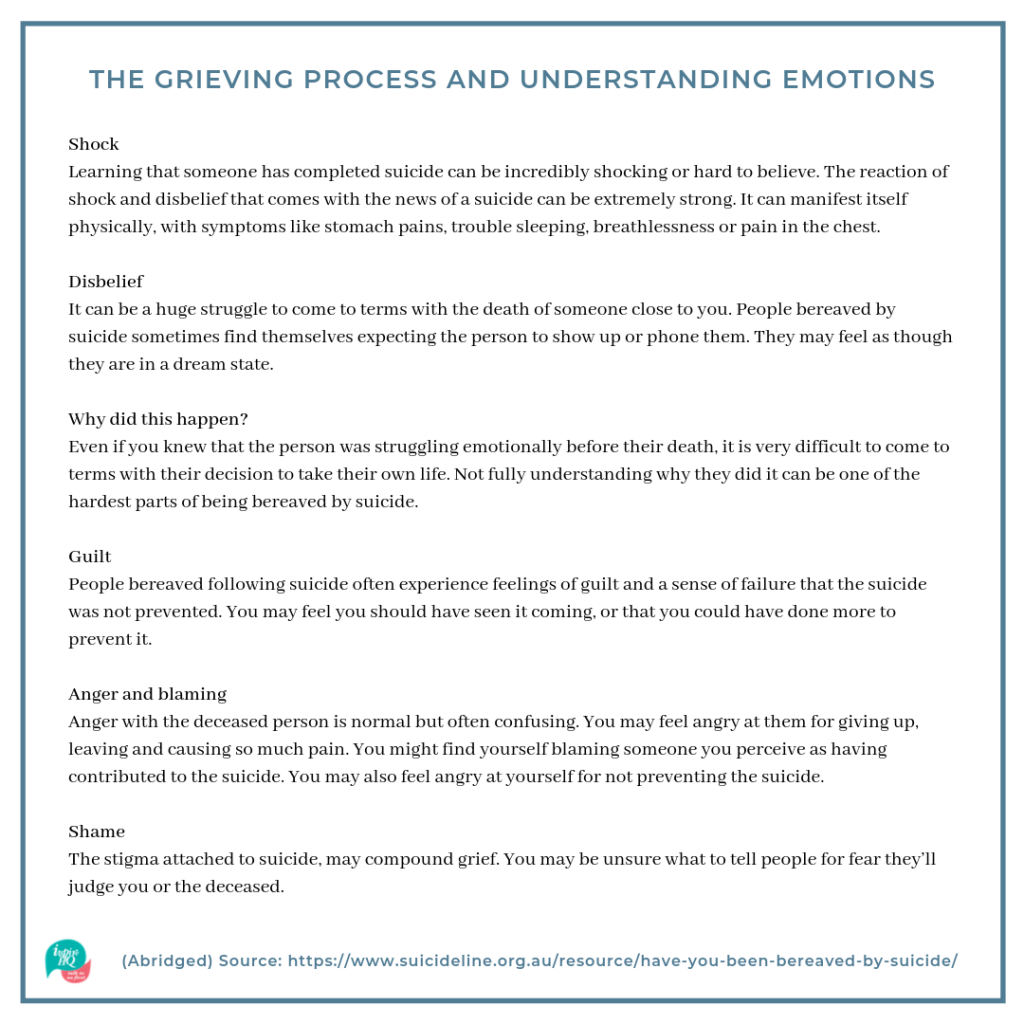In our community we’ve been rocked by three suicides in recent weeks. It is heart-warming to see the outpouring of support our community has shown to their families and close friends. Our hearts go out to them in their time of immense grief. When we experience a sudden and unexpected loss, it is easy to overlook the people who the deceased often spent a large part of their waking hours with, their colleagues. As we know, the ripple effect of suicide knows no bounds.
For anyone who has experienced the suicide of a colleague, the emotional rollercoaster often begins long before their death. Whether the colleague has a known mental illness or not, their behaviour often changes as they attempt to manage their mental health and slip into crisis. Each person and situation are different. In our experience of helping colleagues in crisis, we’ve seen staff who have become withdrawn and isolated themselves, some who have relied heavily on colleagues for emotional and psychological support; and others who have developed a skewed perspective of their situation and the people who are trying to help them.
Whilst workplaces can play a crucial role in suicide prevention (see resources at the end of this article), it’s important to note that suicide is hardly ever caused by a single factor, such as incident or relationship at work. Suicide is complex. It is human nature to try to identify why someone has taken their life, and this can lead to staff looking for someone to blame or even blaming themselves. This thinking can quickly get out of hand and have long lasting impacts on the team and the individuals involved. The only way to stop the rumours and judgements is to provide a reliable source of information and support.
Communication
Communicating quickly and in person (where possible) to their team and those that they were closest to, is vital in beginning the support process. With the family’s permission, communicate the truth about how they died. This does not mean that we need to disclose the graphic details of the method they used, cite evidence from any suicide note or make any assumptions about what may have led to their death. Speak with compassion, but without judgement.
Managing Grief
We all grieve in different ways and at our own pace. During the immediate emotional aftermath, we have seen the benefit of prioritising employee wellbeing over deliverables and performance. It’s our natural reaction as a leader to want to ‘fix’ things, however our most important role is to show and source support. Support is best when it provides employees with a variety of options, allowing them to choose the option(s) that best suits them. Options may include: time to attend the funeral, flexible work hours, time off, counselling, being able to bury themselves in work, creating a memorial event or item, and/or holding a fundraiser for a cause or the family.
Moving On
Handled sensitively and with compassion, should result in the team recovering from the tragedy, having worked through the grief process. Being mindful that this process can take weeks, months or longer. Getting back to work and a routine, without hiding from the loss, can help the team to move forward.
If someone appears to be suffering over a prolonged period, it is ok to step in and ask if they need help. Behaviours that might indicate someone isn’t coping include:
- Inability to concentrate
- Lack of motivation
- Anger
- Increased stress
- Decreased productivity
- Overly emotional
If you believe there is an issue, but they are not ready to seek help, it can be helpful for you to speak to a counsellor to identify strategies you can use to assist them.
As a leader, it is important to also look after your own mental health and wellbeing during this time. A self-care plan is critical in ensuring your mental strength and ability to effectively support the people you work with. Contrary to some thoughts, taking care of yourself is not selfish, it demonstrates true leadership and vulnerability, which your employees’ will value and respect.
If you need help coping with suicidal thoughts, suicide prevention or suicide bereavement, please contact:
- Lifeline – 13 11 14
- Mensline Australia– 1300 78 9978
- Kids Help– 1800 55 1800
- Suicide Call Back Service – 1300 65 9467
- Beyond Blue – 1300 22 4636
- https://www.suicideline.org.au/
- https://mhfa.com.au/sites/default/files/mhfa-guidelines-suicide-revised-2014.pdf
Emma Baldwin is a seasoned human resource business partner, who strives to build trust and respect in every workplace. As a generalist, Emma’s experience spans the full range of human resources including: compliance, mediation, investigation, conflict resolution, employee training and recruitment. Outside of work, Emma enjoys exploring the great outdoors, health and fitness, theatre productions and spending time with her young family.
Claire Huntington has over 15 years’ experience in senior and executive level human resource management and strategic leadership positions. Claire learnt HR under the wings of great mentors and through trial and error. She has a very practical hands-on approach to HR and management, and isn’t afraid to look outside the box. Claire is also mum to three school aged firecrackers and is an avid photographer in her spare time.
Disclaimer: The material contained in this publication is of a general nature only. It is not, nor is intended to be, legal advice. If you wish to act based on the content of this publication, we recommend that you seek professional advice.


